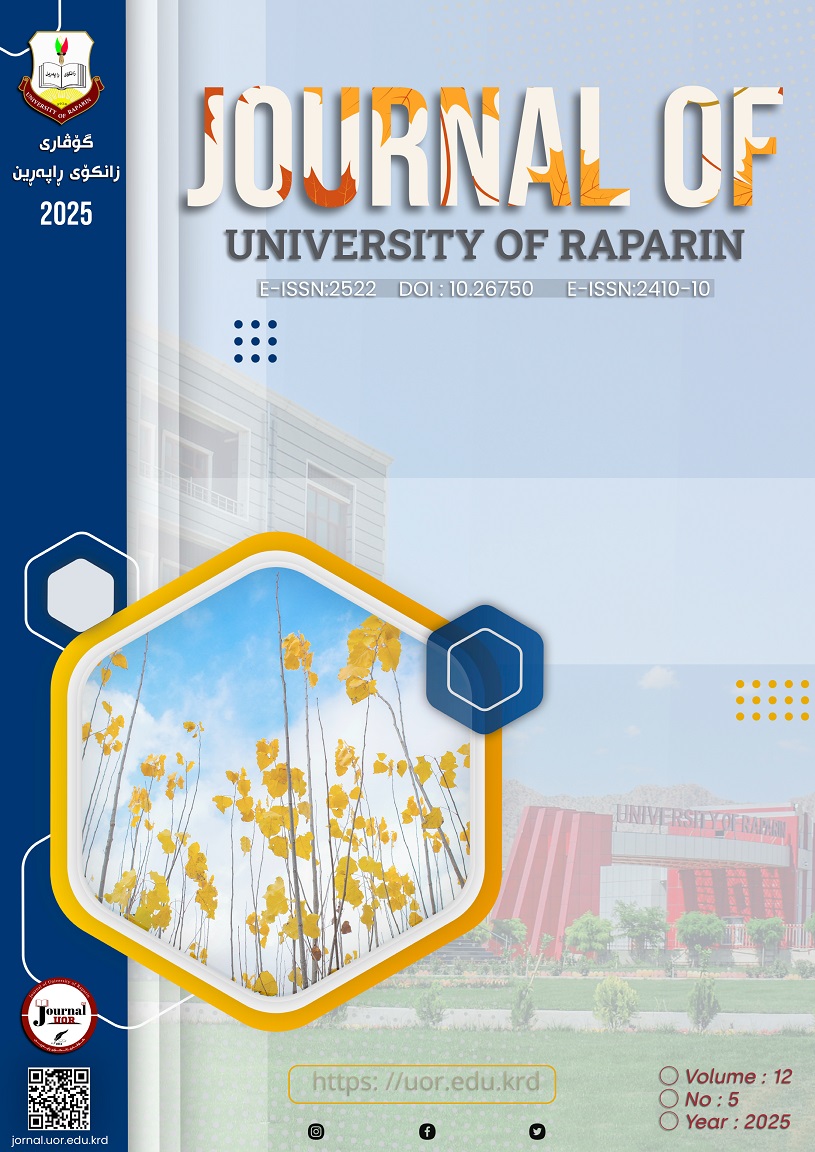الملخص
The aim of this study is to understand the effects of political discourse that electronic journalism has on voter in the Kurdistan Region. The descriptive approach was followed in this study, and the survey tool was used for a random sample of voters in the Kurdistan Region, numbering (688) people, relying on an electronic questionnaire tool that was formulated through Google Form.
A non-random, intentional sample of election office officials from six major political parties in the Kurdistan Region participating in the elections was also used through scientific interviews. The study reached a number of conclusions, including: A large percentage of the study sample reads news via the Internet. The percentage of reading political discourse or political discussions by the study sample is average, while the percentage of reading political discourse through electronic journalism is low. The study sample is interested in the media content of political discourse on electronic journalism in general and video clips in particular. The study sample's trust in the political discourse of the electronic press is satisfactory, and the percentage of criticism directed by the study sample towards the political discourse of electronic press is high. The political discourses published in electronic journalism had a moderate influence on study samples’ voting decisions for candidates or party lists .Finally, the study found that political discourse published in electronic journalism had a moderate effect on participants’ engagement in election campaigns.
المراجع
حسين، يوسف محمد (٢٠٢١)، أساليب الدعاية في الخطاب السياسي العراقي دراسة تحليلية لمضمون المؤتمر الصحفي الأسبوعي لرئيس الوزراء للمدة من 1/4/2019 لغاية 1/8/2019، بحث منشور، مجلة الاستاذ للعلوم الإنسانیة والاجتماعیة، المجلد ٦٠، العدد ١. DOI: https://doi.org/10.36473/ ujhss.v60i1.1270
العياري، محمد العربي (٢٠٢٢)، الخطاب السياسي في تونس وصناعة الرأي العام، قراءة في نتائج دراسة ميدانّية، بحث منشور، مرکز الدراسات المتوسطية والدولية، ورقات سياسية.
منخرفيس، يمينة (٢٠٢١)، دلالة الاتصال غير اللفظي في الخطاب السياسي المتلفز: دراسة تحليلية سيميولوجية لعينة من خطابات الحملة الانتخابية لرئاسيات أبريل ٢٠١٤، أطروحة دكتوراه، جامعة الجزائر، کلیة علوم الاعلام والاتصال، قسم الاتصال.
مسعودي، مراد، مسعودي، بريكة، جعفري، & عبد الله/مؤطر. (2022). الخطاب السياسي وإشكالية الاتصال السياسي في الحملات الانتخابية في الجزائر (أطروحة الدكتوراه، جامعة احمد دراية-ادرار).
نجاة، صابر حسن جاد أحمد (٢٠٢٢). الخطاب السياسي وأثره على المشاركة المجتمعية. المجلة العلمية لكلية الآداب-جامعة أسيوط، 27(83)، 251-274. DOI:10.21608/aakj.2023.145689.1275
AMAGHLOBELI, N., 2017. Political discourse in the media. Journal of Media Studies, 5(1), pp. 1-15.
Chilton, P., 2004. Analysing political discourse: Theory and practice. London: Routledge.
Hindman, M., 2018. The internet trap: How the digital economy builds monopolies and undermines democracy. Princeton: Princeton University Press.
Karpf, D., 2016. Analytic activism: Digital listening and the new political strategy. Oxford: Oxford University Press.
Kassarnig, V., 2016. Political speech generation. arXiv preprint arXiv:1601.03313. Available at: https://arxiv.org/abs/1601.03313 [Accessed 24 April 2025].
Papacharissi, Z., 2015. Affective publics: Sentiment, technology, and politics. Oxford: Oxford University Press.
Pfetsch, B., 2004. From political culture to political communication culture: A theoretical approach to comparative analysis. European Journal of Communication, 19(3), pp. 344-366.
Safwat, S., 2015. Speech acts in political speeches. Journal of Modern Education Review, 5(7), pp. 699-706.
Stromer-Galley, J., 2019. Presidential campaigning in the internet age. 2nd ed. Oxford: Oxford University Press.Newman, N., 2019. Journalism, media, and technology trends and predictions 2019. Oxford: Reuters Institute for the Study of Journalism.
Vaidhyanathan, S., 2018. Antisocial media: How Facebook disconnects us and undermines democracy. Oxford: Oxford University Press.
Van Dijk, T. A. (1997). What is Political Discourse Analysis. Belgian Journal of Linguistics, 11(1), 11-52.
Wodak, R., 2009. The discourse of politics in action: Politics as usual. Basingstoke: Palgrave Macmillan.

هذا العمل مرخص بموجب Creative Commons Attribution-NonCommercial-NoDerivatives 4.0 International License.
الحقوق الفكرية (c) 2025 Journal of University of Raparin

